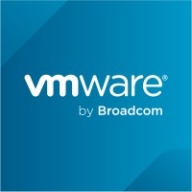


Spring Cloud and AWS CloudFormation are competing in cloud infrastructure management, with AWS CloudFormation often considered superior for its infrastructure management capabilities and integration with AWS services.
Features:Spring Cloud supports microservices architecture with features for seamless service discovery and creating distributed systems. It offers flexibility and scalability for microservices development. AWS CloudFormation automates AWS infrastructure management, provides templates for efficient setup, and offers detailed control over AWS resources for comprehensive infrastructure management.
Ease of Deployment and Customer Service:AWS CloudFormation supports streamlined deployment with strong integration across AWS services, facilitating resource management and automation. It has an advantage with AWS's extensive troubleshooting resources. Spring Cloud offers flexible microservices deployment based on service-oriented architecture. Both products provide significant customer support, enhancing their respective offerings.
Pricing and ROI:Spring Cloud is cost-effective, beneficial for small and medium enterprises with lower initial costs and effective microservices architecture. AWS CloudFormation may have higher initial costs but offers a strong ROI through its robust features and refined infrastructure management, appealing to larger enterprises. Spring Cloud is preferred for budget-conscious deployments, while AWS CloudFormation's comprehensive features often justify its investment.
| Product | Market Share (%) |
|---|---|
| Microsoft Intune | 9.2% |
| AWS CloudFormation | 2.5% |
| Spring Cloud | 1.4% |
| Other | 86.9% |



| Company Size | Count |
|---|---|
| Small Business | 116 |
| Midsize Enterprise | 46 |
| Large Enterprise | 152 |
| Company Size | Count |
|---|---|
| Small Business | 15 |
| Midsize Enterprise | 8 |
| Large Enterprise | 17 |
Microsoft Intune provides centralized management of mobile devices and applications, ensuring security, compliance, and productivity through integration with Microsoft services like Microsoft 365 and Azure Active Directory.
Organizations use Intune for managing mobile devices and applications, enhancing security and compliance across platforms. With features like single sign-on, conditional access, and zero-touch deployment via Autopilot, it facilitates efficient operations. Intune's scalability, easy enrollment, and capabilities such as remote wipe support diverse device management, offering robust data protection and efficient operation. Despite its features, improvement areas include reporting, compatibility with non-Microsoft devices, and better support for macOS and Linux devices.
What are the key features of Microsoft Intune?
What benefits should users look for in reviews?
In industries such as finance, healthcare, and education, Microsoft Intune is implemented to ensure secure and compliant device management. Companies leverage its capabilities to deploy security policies and manage both corporate-owned and BYOD environments, facilitating a unified approach to data protection and compliance.
AWS CloudFormation provides a common language for you to model and provision AWS and third party application resources in your cloud environment. AWS CloudFormation allows you to use programming languages or a simple text file to model and provision, in an automated and secure manner, all the resources needed for your applications across all regions and accounts. This gives you a single source of truth for your AWS and third party resources.
Spring Cloud simplifies distributed, microservice-style architecture by implementing proven patterns to bring resilience, reliability, and coordination to your microservices. Using Spring Cloud Services, Pivotal Cloud Foundry customers have a turnkey, secure solution for production operations of this coordination infrastructure - service registry, config server, and circuit breaker dashboard.
We monitor all Configuration Management reviews to prevent fraudulent reviews and keep review quality high. We do not post reviews by company employees or direct competitors. We validate each review for authenticity via cross-reference with LinkedIn, and personal follow-up with the reviewer when necessary.